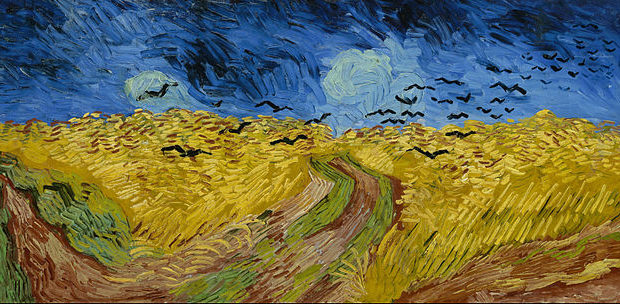
World Bipolar Day (WBD) is a global initiative founded by various professional societies and foundations to bring world awareness to bipolar disorders and to eliminate social stigma. Through international collaboration, the goal of World Bipolar Day is to bring the world population information about bipolar disorders that will educate and improve sensitivity towards the illness. WBD is celebrated each year on March 30th, the birthday of Vincent Van Gogh, who was posthumously diagnosed as probably having bipolar disorder.
Bipolar disorder is a brain disorder that causes abnormal strong shifts in mood, activity levels and energy, and severe suffering for patients and caregivers. This disorder constitutes a major health economic challenge for societies: according to the most recent WHO global burden of disease study, bipolar disorders rank within the top 20 causes of disability among all medical conditions worldwide, and rank 6th among the mental disorders.
Bipolar disorders rank within the top 20 causes of disability among all medical conditions worldwide.
The life expectancy of patients with bipolar disorder is reduced by about 10 years, likely due to medical comorbidity, high suicide rates and adverse lifestyles. Clearly, bipolar disorders deserve a higher priority in the research agenda to gain understanding of underlying pathogenic mechanisms, reduce the diagnostic delay, and improve treatment strategies. Although research activities have increased in many countries in the past decade, funding for research in bipolar disorder is still low compared with other severe mental and medical disorders.
Sharing knowledge of bipolar disorders
For the first time, International Journal of Bipolar Disorders (IJBD) joins World Bipolar Day in 2017, four years after the journal’s launch as the first open access online journal dedicated to the publication and communication of all aspects of the illness. The need for a new journal in bipolar disorder was reflected in its founding year 2013 by an increasing number of research activities around the globe. Since then, the number of publications has risen significantly, and all are completely free and open on the journal’s website.
One major advantage of open access publishing is that it allows every person to read the publications without charge on the internet, not only health care professionals but also people suffering the disorder and lay people interested in the subject. This is a major advancement because it allows patients and caregivers to be better informed and educated about the illness.
Increase in education of bipolar disorder is a major request by scientists and therapists during the past decade. This way of freely available publication to researchers worldwide enables maximum dissemination. Traditionally, scientific articles were only accessible for those people who had institutional access to libraries at universities or other research institutions.
IJBD publishes contributions from the entire range of clinical, psychological, social and biological research in bipolar disorders and its closely related disease areas.
International Journal of Bipolar Disorders contributes to the facilitation of publication and global access of new research results and clinically useful literature reviews, and fosters the exchange of ideas among the multidisciplinary health professionals and researchers involved with bipolar disorders. With the help of a distinguished international editorial board of 97 leading researchers from every continent, IJBD aims to help bridge the gap between research findings and clinical practice, as well as to facilitate the dissemination of new research data, with the ultimate goal of improving the care of patients with bipolar disorders.
IJBD publishes contributions from the entire range of clinical, psychological, social and biological research in bipolar disorders and its closely related disease areas (e.g. depression, schizoaffective disorder). From a therapeutic perspective, established but also new, even experimental psychological and pharmacological treatments will be the journal’s focus.
Methods and research findings from applied neurosciences that demonstrate translational value will increase in the coming years. Another focus will be how digital devices and big data will impact the delivery of care for people with bipolar disorder which is changing with a new emphasis on integrated care, preventative measures, population health, and the biological basis of disease. Fundamental to this transformation are big data and advances in the ability to analyze these data. The impact of big data on the routine treatment of bipolar disorder today and in the near future are welcomed at IJBD, with examples that relate to health policy, the discovery of new associations, and the study of rare events.
IJBD encourages clinicians and researchers to submit original research papers, short research communications, reviews, guidelines, exceptional clinical case reports and commentaries (letter to the editor) concerning bipolar disorders. The editorial team and the peer-review system ensure that all submitted manuscripts are reviewed fairly and swiftly, and once accepted, published online rapidly. Please participate in International Journal of Bipolar Disorders as readers and authors. The journal’s home is at https://www.journalbipolardisorders.com/.
Comments